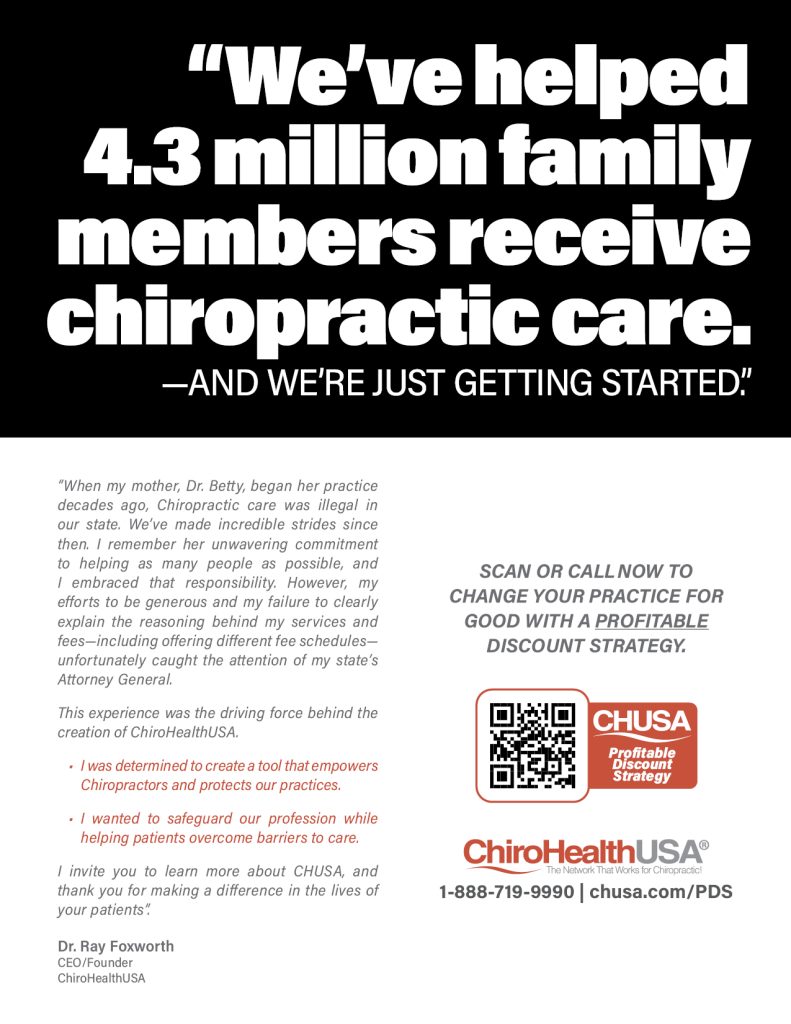Recently, a chiropractor posted in a Facebook group asking whether it was okay to provide extremity adjustments for free. The responses? All over the place. Some doctors proudly declared, “I never charge for them,” while others warned, “You can get in trouble for offering free services.”
While chiropractors themselves may be divided, compliance consultants, auditors and investigators are not! Experts in chiropractic compliance overwhelmingly agree. You should never offer free services. The risks of violating insurance regulations, anti-kickback laws, and state board rules are simply too high.
FREE Doesn’t Always Mean Value
Let’s be honest—just because something is free doesn’t mean people want it. If someone offered you a free cup of coffee, you’d probably take it. But what if someone offered you or a family member a free or deeply discounted vasectomy? Suddenly, “free” doesn’t sound so appealing, does it?
Patients value what they pay for. When you give away adjustments, exams, or any part of your care for free, patients may subconsciously assume it’s not worth much. Worse, they may start to expect free services as the norm. Free can be a great marketing hook in some industries, but in healthcare, it most definitely is not.
Think about it: Would you trust a mechanic who promised you a free brake job? Or a dentist offering a “Buy One, Get One Free” root canal? Probably not. Patients associate cost with quality, and your chiropractic services are valuable. If you offer something for nothing, people start to wonder about the value of your care—and not in a good way.
Advertisement

Federal and State Laws
Giving away free services might seem harmless, but many states and federal agencies disagree. In some cases, offering free exams, X-rays, or adjustments can violate anti-kickback laws and insurance regulations. A well-meaning giveaway could put your license and your practice at risk.
Setting a Dangerous Precedent
Once you start offering free services, it’s hard to stop. Patients talk. If one person gets a free adjustment, others will expect the same treatment. Before you know it, you’ve got a waiting room full of people who aren’t paying for your time and expertise.
It also creates an expectation that chiropractic care should be cheap—or worse, free. That’s not just bad for your practice; it’s bad for the entire profession. Chiropractors work hard to establish themselves as healthcare professionals, and giving away services undermines that effort.
Legal and Insurance Nightmares
Many insurance companies consider free services a red flag. If they find out you’re offering freebies, they might audit your practice, question your billing practices, or even refuse to reimburse your claims. An insurance audit is about as fun as a root canal, so it’s best to avoid giving them any reason to investigate your office.
Losing Money Instead of Gaining Patients
The goal of offering free services is usually to bring in new patients, but the numbers rarely work out in your favor. Let’s say you give 10 free adjustments, hoping that 50% of those patients will stick around. In reality, only 10–20% convert into paying patients. Now you’ve given away hours of your time and resources for a handful of uncertain commitments.
Meanwhile, those 10 free adjustments could have been paying appointments. Instead of building revenue, you’re burning it.
A Legal and Compliant Alternative: Discount Medical Plans
If your goal is to make chiropractic care more affordable for patients, there’s a legal way to do it: Discount Medical Plans (DMPO). These plans allow you to offer discounted care to patients in a way that complies with federal and state laws.
Instead of giving away free services, you can enroll patients in a DMPO where they pay a set fee in exchange for legally discounted chiropractic care. This keeps your practice in compliance, ensures patients receive affordable care, and helps you avoid the legal pitfalls of offering free and discounted services the wrong way.
Free chiropractic services might seem like an easy way to attract new patients, but the risks far outweigh the benefits. Legal troubles, devalued expertise, insurance headaches, and lost revenue all make it clear “Free” isn’t really free.
If you want to grow your practice, focus on ethical, sustainable marketing strategies that respect your time, skills, and financial well-being. A Discount Medical Plan is one of the best options for offering patients affordable care legally while also keeping your practice profitable. Because at the end of the day, you’re not just a chiropractor—you’re a business owner. And businesses thrive on smart decisions, not giveaways. If you are looking for a profitable discount strategy for your practice, click here to learn more.


